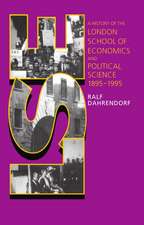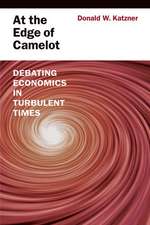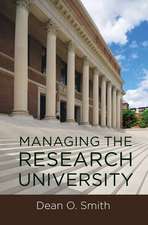The Materiality of Language – Gender, Politics, and the University
Autor David Bleichen Limba Engleză Paperback – 27 iun 2013
Preț: 198.00 lei
Nou
Puncte Express: 297
Preț estimativ în valută:
37.90€ • 41.18$ • 31.86£
37.90€ • 41.18$ • 31.86£
Carte tipărită la comandă
Livrare economică 21 aprilie-05 mai
Preluare comenzi: 021 569.72.76
Specificații
ISBN-13: 9780253007728
ISBN-10: 0253007720
Pagini: 548
Dimensiuni: 158 x 231 x 39 mm
Greutate: 0.77 kg
Editura: Wiley
ISBN-10: 0253007720
Pagini: 548
Dimensiuni: 158 x 231 x 39 mm
Greutate: 0.77 kg
Editura: Wiley
Cuprins
Introduction: The Contested SubjectPart One: The Materiality of Language 1: Premises and Backgrounds ; 2: Received Standards in the Study of Language; 3: Materiality and Genre ; 4: The Unity of Language and Thought ; 5: Materiality and the Contemporary Study of Language ; 6: Recognizing Politics in the Study of LanguagePart Two: Language in the University 7: Frustrations of Academic Language ; 8: The Protected Institution ; 9: The Sacred Language ; 10: Language Uses in Science, the Heir of Latin; 11: Language and Human Survival ; 12: The Materiality of Literature and the Contested SubjectWorks Cited and Consulted; Index
Recenzii
"Shows how language politics and gender politics go together and how suppression of language is related to suppression of people.... The Materiality of Language is a critique (historical and intellectual) of male-dominated modes of language use, their roots in the founding and administering of the university, their effects on what can and can't be studied, and their spill over into popular culture.... The argument is by accretion, by finding patterns. That is, Bleich provides analytic resources that are portable. This critique roams broadly over science, social science, [and the] humanities, and both the critique and the alternative are powerfully rendered." Deborah Brandt, University of Wisconsin-Madison"A potentially foundational text in an emergent field [of] language studies, whose work is to break up the monopoly Linguistics and Philosophy have had on the study of language.... [An] alternative history of western linguistic thought... [featuring] thinkers who developed "material" or socially-driven philosophies of language.... One of the book's distinctive features is the use of gender as a key normative analytical lens throughout. It would be difficult to exaggerate how rare this is among language thinkers, and how productive it is for the arguments here." Mary Louise Pratt, New York University "A powerful, first-rate book on a crucial topic." Dale Bauer, University of Illinois
Notă biografică
Descriere
Language is understood as a key path in the formation of all social and political relations










